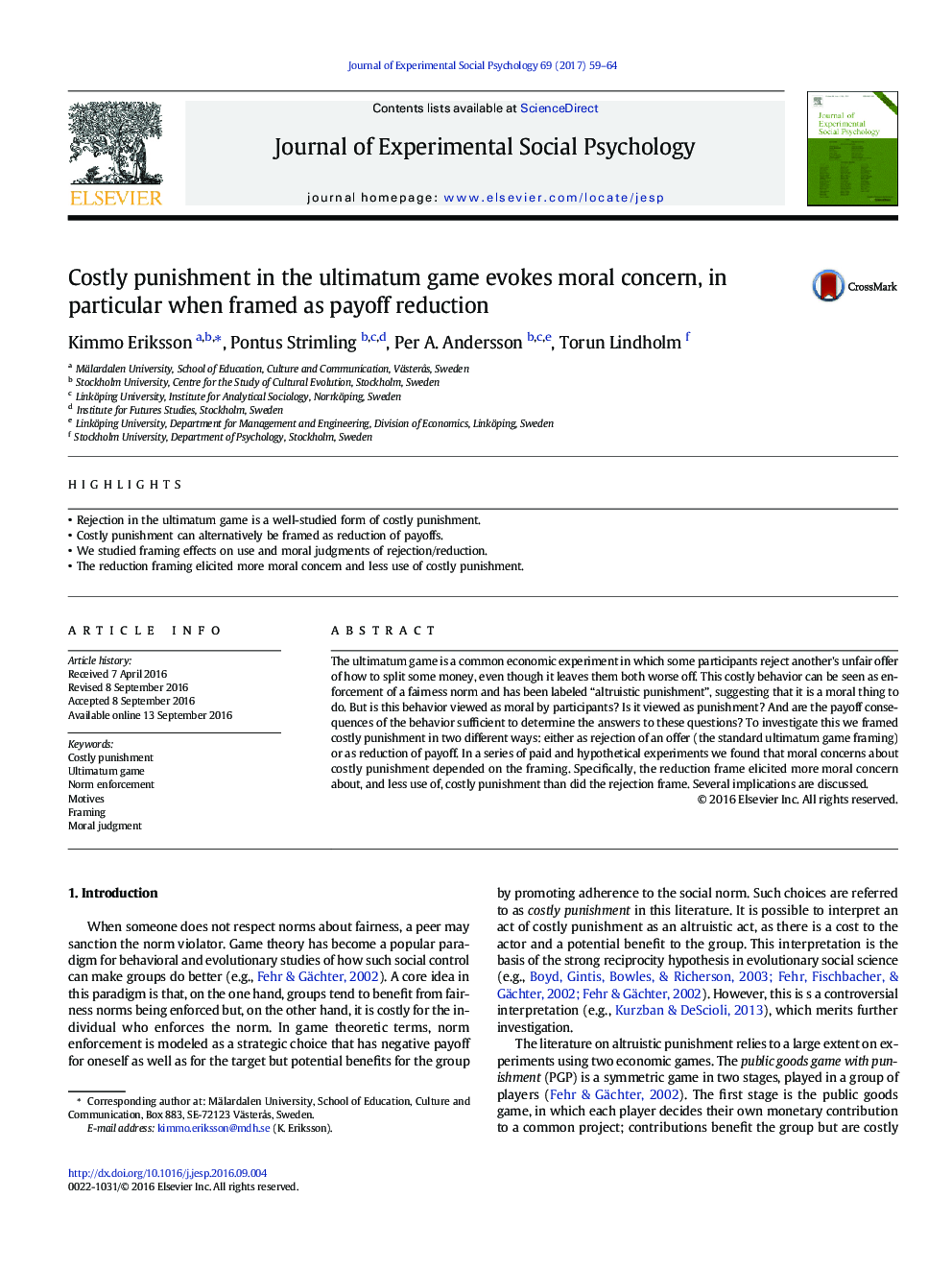| کد مقاله | کد نشریه | سال انتشار | مقاله انگلیسی | نسخه تمام متن |
|---|---|---|---|---|
| 5045714 | 1475854 | 2017 | 6 صفحه PDF | دانلود رایگان |
- Rejection in the ultimatum game is a well-studied form of costly punishment.
- Costly punishment can alternatively be framed as reduction of payoffs.
- We studied framing effects on use and moral judgments of rejection/reduction.
- The reduction framing elicited more moral concern and less use of costly punishment.
The ultimatum game is a common economic experiment in which some participants reject another's unfair offer of how to split some money, even though it leaves them both worse off. This costly behavior can be seen as enforcement of a fairness norm and has been labeled “altruistic punishment”, suggesting that it is a moral thing to do. But is this behavior viewed as moral by participants? Is it viewed as punishment? And are the payoff consequences of the behavior sufficient to determine the answers to these questions? To investigate this we framed costly punishment in two different ways: either as rejection of an offer (the standard ultimatum game framing) or as reduction of payoff. In a series of paid and hypothetical experiments we found that moral concerns about costly punishment depended on the framing. Specifically, the reduction frame elicited more moral concern about, and less use of, costly punishment than did the rejection frame. Several implications are discussed.
Journal: Journal of Experimental Social Psychology - Volume 69, March 2017, Pages 59-64
